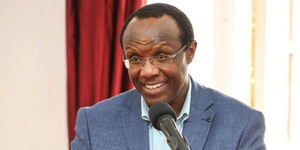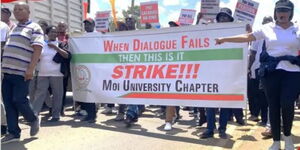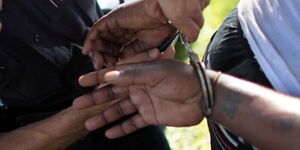Embakasi East MP Babu Owino has denounced the Religious Organisations Bill, 2024, which he says is being used by the Executive to silence churches.
Speaking on Monday, the lawmaker argued that passing the Bill could "finish" churches.
As such, he called on Kenyans to challenge the Bill, which seeks to regulate religious organisations, including churches, to combat extremism and ensure accountability.
“I want to condemn the Bill that is being prepared by the executive, a Bill that is interfering with the independence of the churches in this nation," Babu said.
“The idea that is being brought by the Executive to fight and finish the church in this nation is so gibberish and retrogressive. We will not sit back and watch the church being finished. We will support anything that goes with God."
The MP further claimed that the church's role in society was too vital to be interfered with; thus, allowing it to be regulated by the government would lead the country in the wrong direction.
He also opined that the church should continue acting as the opposition.
As such, he called out what he termed as troubling signs, seen in attempts to "silence, intimidate, or control the Church" by dictating what can be preached and questioning the Church’s right to speak truth to power.
"Let us be clear: the Church does not exist at the pleasure of any government. The Church exists by divine calling to speak the truth, even when that truth is uncomfortable," he declared.
"The government has its place: to make laws, to protect citizens, and to serve the nation. The Church has its place: to nurture souls, to defend moral values, and to remind us all, leaders and citizens alike, that power without justice is tyranny, and authority without humility is dangerous. We respect our leaders. We pray for them."
Part of the proposed Bill dictates that religious institutions should not engage in any political activities aimed at acquiring power. They should also not organise debates to support a specific political party or candidate.
It also seeks to safeguard individuals from coercion and harmful practices within religious settings, like what happened in Shakahola.












